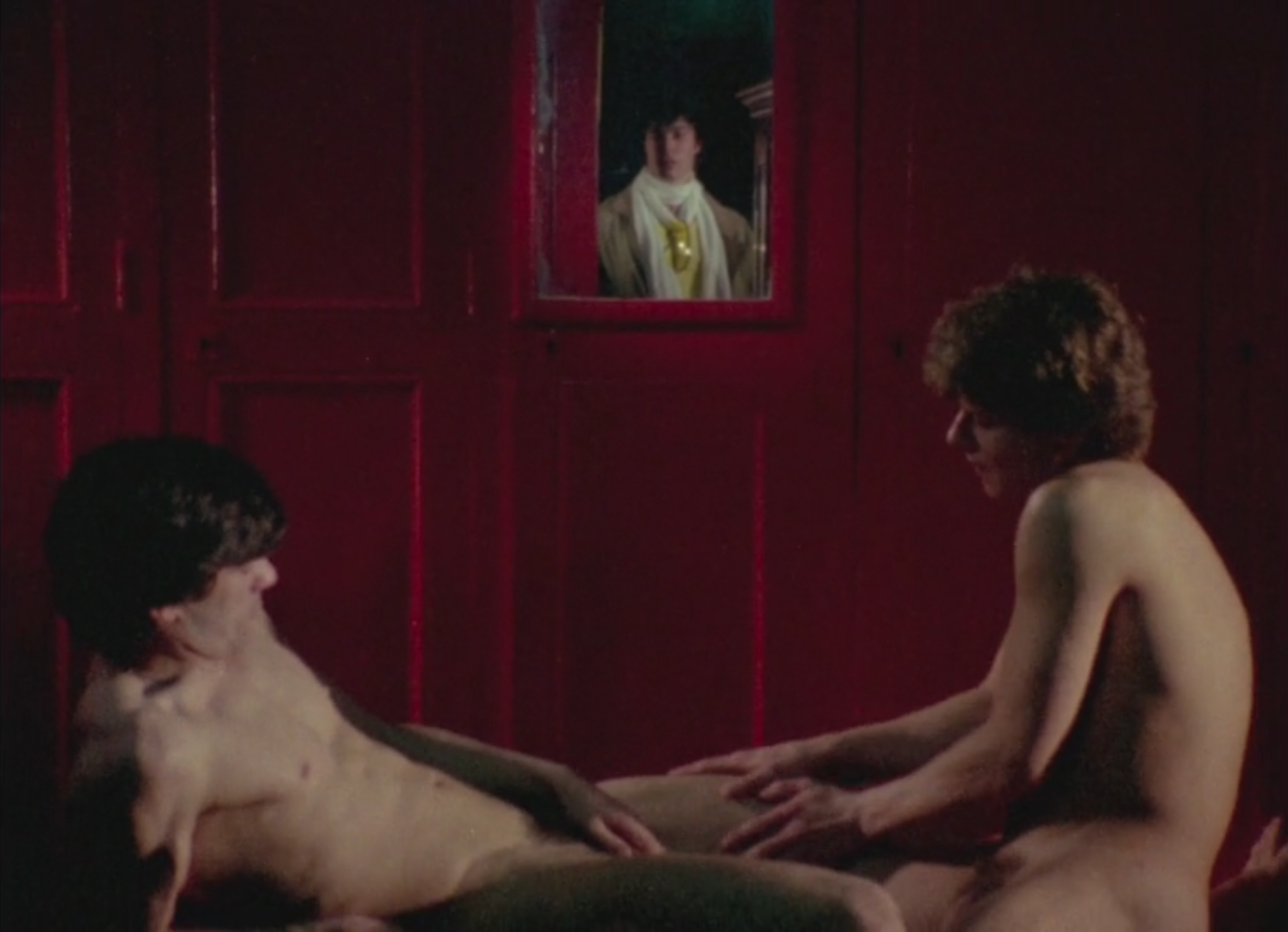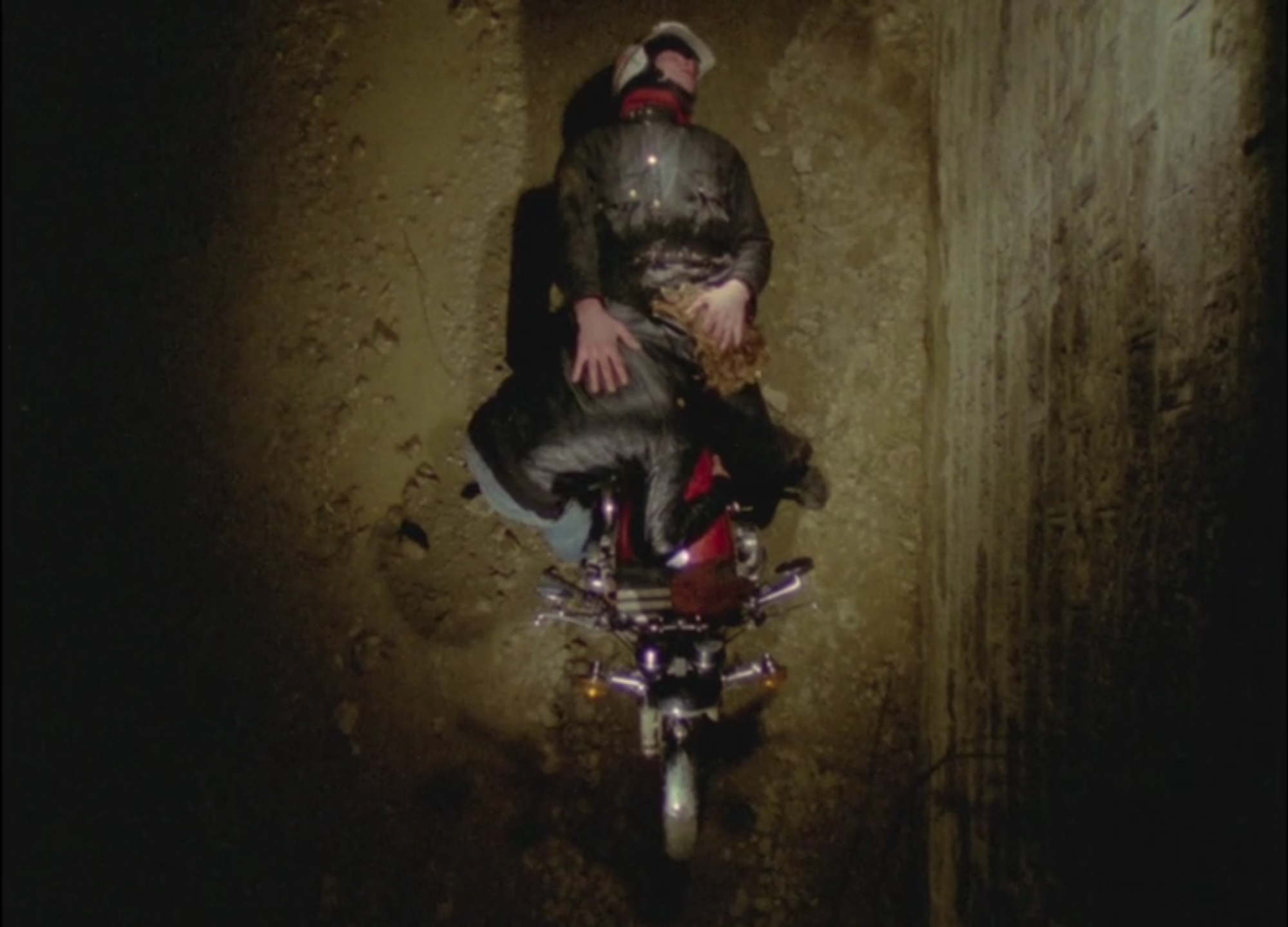Equation to an Unknown
1980
A young man stares intensely at the players on a torn up football pitch. The camera acting as his gaze absorbs their pumping thighs, their bodies colliding into each other, how they embrace each other in homosociality after the whistle blows. Is it not natural that a young gay man should start to ponder? To fantasise that their homosociality should melt into homosexuality and that just maybe he might share in that melting?

This is what lies at the core of Equation to an Unknown, and so it allows us to be a voyeur into how our protagonist, time and time again, spins encounters with the myriad men he's drawn to, into graphic imaginings of them fucking. After all, isn't so much gay fantasy under repressive societies one of this free flowing between homosexuality and homosociality. Cisheteronormativity serves to make these two concepts mutually exclusive, which we can see in the lead consistently being in the position of the outsider, disconnected from the men around him save for in his fantasies.
It becomes as the film progresses, increasingly obvious that these are power fantasies for the lead, essentially him playing with his dolls in his mind. While the film might make light of him for this and the disjunction between the fantasies and his potentially real sexual experiences, it never can show full contempt for the protagonist. Even with a chorus of laughter from disembodied women building in the climactic sex scene, it truly is some of the most beautifully shot gay sex put to film.

A beautiful and rich film, shot with tremendous verve. We see a Paris that during the day is grimly creeping into the 80s, but makes for a luscious nightscape for our protagonist to tear his motorcycle through, streets recalling the aesthetics of 70s New York. While it might seem trite or a stretch to draw this comparison, Equation to an Unknown feels like it is directly in conversation with the gay porn that emerged from 70s America. From the dark city streets, to the elements of clone culture fashion that adorn most of the cast, and even how the protagonist's fantasies echo the movies of Wakefield Poole or Joe Gage, the film reflects a French gay culture which has consumed and is infused with these works. These reflections while distorted somewhat in this new context, strike a delicate balance between being at times absurd and others exceedlingly alluring. The manner in which the camera luxuriates over the men, their bodies sensuously merging with one another, fuzz and cocks and skin and muscles, all rendered with the most glowing delight. With this it's hard to say that the film wants you to balk at the protagonist's fantasy, it wants you to share in it. While not reaching the singular aesthetic experience that is Wakefield Poole's Bijou, it truly does a wonderous job of making a gay man's daydreams worthy of rapture.
-KS